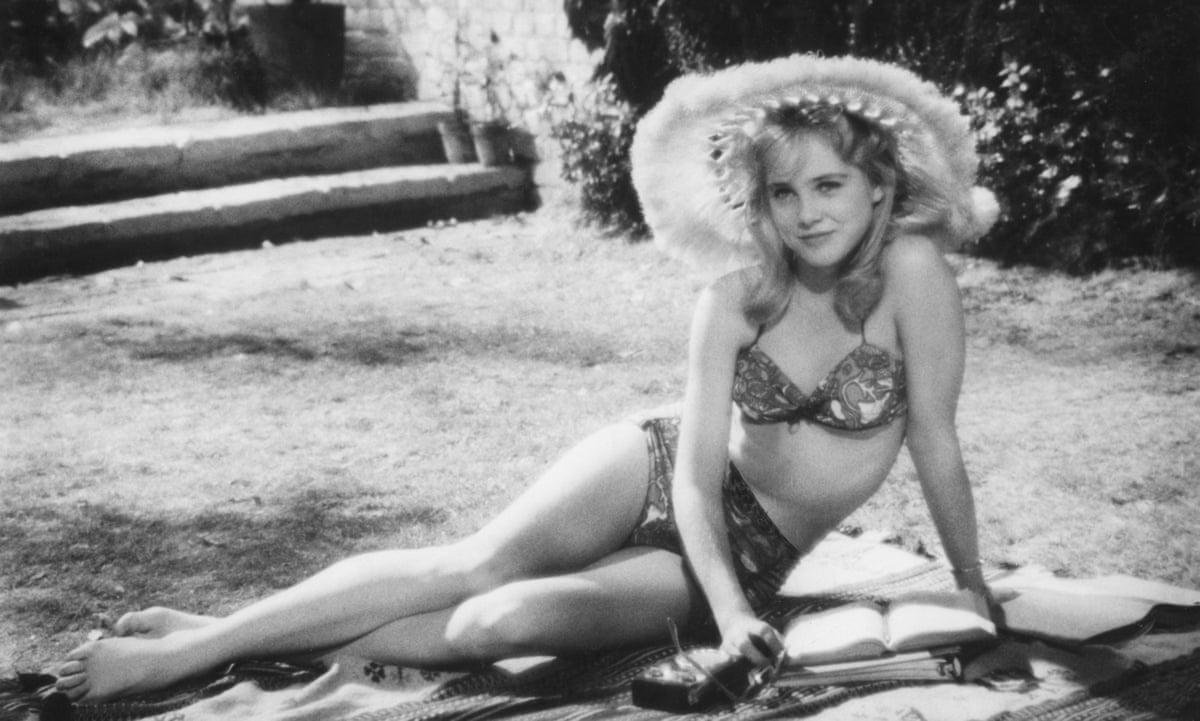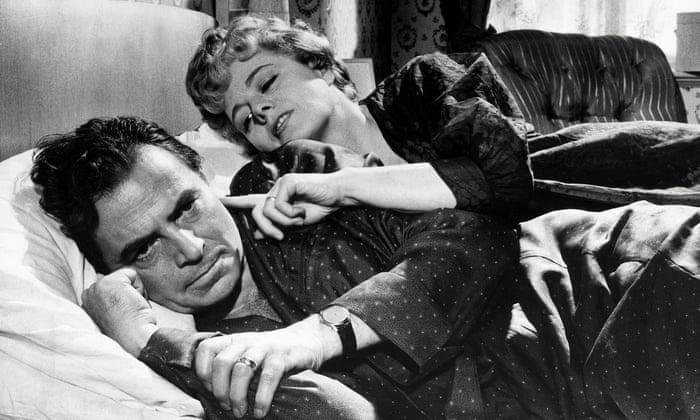Exploring the Controversial Themes of Stanley Kubrick’s ‘Lolita’
Stanley Kubrick‘s ‘Lolita’ is a film that has stood the test of time, captivating audiences since its release in 1962. However, it has also been the subject of much controversy due to its themes of pedophilia and sexual desire. In this article, we will delve into these controversial themes and explore the artistic choices Kubrick made that continue to ignite discussion and debate to this day. So, buckle up and get ready to dive into the complex and unsettling world of ‘Lolita.’
Stanley Kubrick‘s ‘Lolita’ is a film that has stood the test of time, captivating audiences since its release in 1962. However, it has also been the subject of much controversy due to its themes of pedophilia and sexual desire. In this article, we will delve into these controversial themes and explore the artistic choices Kubrick made that continue to ignite discussion and debate to this day. So, buckle up and get ready to dive into the complex and unsettling world of ‘Lolita.’

Introduction to Stanley Kubrick’s Lolita and its controversial themes
Stanley Kubrick’s Lolita is a controversial masterpiece that explores the taboo subject of pedophilia. The film tells the story of a middle-aged professor, Humbert Humbert, who becomes obsessed with a teenage girl named Lolita. Kubrick’s adaptation of Vladimir Nabokov’s novel is a brilliant examination of the human psyche and the dangers of desire. Lolita explores themes of sexuality, obsession, and manipulation, making it one of the most controversial films of its time. In this article, we will take a closer look at the controversial themes in Stanley Kubrick’s Lolita, and how this film challenges our perceptions of morality and art.
The portrayal of pedophilia in Lolita
The portrayal of pedophilia in Stanley Kubrick’s Lolita has been a controversial topic since its release in 19 The film follows the story of a middle-aged man who becomes infatuated with a 12-year-old girl named Lolita. Kubrick’s portrayal of this taboo topic has been criticized by many, but also praised for its daring approach. The film showcases the complexities and nuances of the relationship between the older man and Lolita, blurring the lines between sympathy and condemnation. While the film can be uncomfortable to watch, it remains a significant piece of cinema that challenges societal norms and perceptions of love and desire.
The age gap between the two main characters and the implications of their relationship
One of the most controversial themes explored in Stanley Kubrick’s Lolita is the age gap between the two main characters, Humbert Humbert and Dolores Haze. Humbert is a middle-aged man who becomes obsessed with the young and innocent Dolores, who is only 12 years old. The implications of their relationship are disturbing and unsettling, as it raises questions about power dynamics, consent, and the sexualization of minors. Kubrick’s depiction of this taboo subject matter is both captivating and uncomfortable, inviting the audience to confront their own feelings and beliefs about such controversial topics.

The depiction of female characters and their agency in the story
Stanley Kubrick‘s Lolita has been a subject of controversy for decades due to its portrayal of a young girl’s sexual relationship with an older man. However, the depiction of the female characters in the film is equally problematic. Lolita herself is often seen as a passive victim, with little control over her own agency. Meanwhile, Charlotte Haze, Lolita’s mother, is portrayed as a desperate and clingy woman, whose only purpose is to fulfill the male gaze. The film’s treatment of these women reinforces harmful stereotypes and perpetuates the objectification of women in cinema. It is important to acknowledge and critique the problematic representation of female characters in Lolita and other films like it, in order to promote more positive and empowering depictions of women in cinema.
The impact of censorship and rating systems on Lolita’s reception
The controversial themes in Stanley Kubrick’s Lolita have always been a subject of debate, but the impact of censorship and rating systems on its reception cannot be ignored. The film was heavily censored and received an X rating upon its release, making it difficult for audiences to access it. The censorship also affected Kubrick’s ability to portray the story’s disturbing themes accurately. Despite the obstacles, Lolita’s critical acclaim and cult following have proven that censorship and rating systems cannot always dictate a film’s popularity or cultural impact.
The controversy surrounding the casting of a young actress to play Lolita
The casting of a young actress to play the titular character in Stanley Kubrick’s “Lolita” has been a subject of controversy since the film’s release in 19 The movie, based on Vladimir Nabokov’s novel of the same name, tells the story of a middle-aged man’s obsession with a young girl. Some argue that casting a young actress to play a sexually provocative role is inappropriate and perpetuates the objectification of young girls in Hollywood. Despite the controversy, the film received critical acclaim and is now considered a classic in cinema history. The debate surrounding the casting of Lolita continues to raise questions about the ethics of portraying uncomfortable themes in film.

The cultural and social context of Lolita’s release in the 1960s
The release of Stanley Kubrick’s Lolita in the 1960s was met with controversy due to its controversial themes of pedophilia and sexual obsession. The cultural and social context of the time was one of increasing sexual liberation, but also one of heightened concern about the exploitation and objectification of women and children. The film’s portrayal of a middle-aged man’s obsession with a prepubescent girl was seen as particularly disturbing, and some critics argued that it glamorized pedophilia. However, others saw it as a powerful commentary on the darker aspects of human desire and the dangers of unchecked lust. Despite the controversy, Lolita remains an important and thought-provoking work of cinema that continues to be studied and debated to this day.
The legacy of Lolita and its influence on film and literature
The legacy of Lolita, a film directed by Stanley Kubrick, extends far beyond its controversial themes. Adapted from Vladimir Nabokov’s novel, Lolita examines the taboo relationship between a middle-aged man, Humbert Humbert, and a teenage girl named Dolores Haze, whom he refers to as Lolita. Despite the controversy surrounding Lolita, the film has left a significant impact on cinema and literature. Kubrick’s direction effectively captures the complex emotions and psychological nuances of the characters, while Nabokov’s writing style showcases the power of language in conveying the depth of human desire. Lolita remains a classic work that continues to influence filmmakers and writers to this day.
Criticisms and defenses of Lolita’s controversial themes
The 1962 film adaptation of Vladimir Nabokov’s novel Lolita, directed by Stanley Kubrick, sparked intense debates due to its controversial themes. Some critics accused the film of glorifying pedophilia and portraying a disturbing relationship between a middle-aged man and a 12-year-old girl. However, defenders of the film argued that Kubrick’s adaptation is a nuanced exploration of the human psyche and the complexities of desire. They argued that the film is not meant to condone or celebrate the protagonist’s actions but to critique them. Despite the mixed reviews, the film remains a classic of American cinema and a thought-provoking piece of art.
Conclusion and reflection on the enduring relevance of Lolita’s controversy
In conclusion, the controversy surrounding Stanley Kubrick’s adaptation of Vladimir Nabokov’s Lolita remains relevant even today. The film continues to spark debates about the portrayal of taboo themes such as pedophilia, consent, and morality. While some argue that the film is a masterpiece of storytelling and filmmaking, others criticize it for sensationalizing and normalizing disturbing behavior. Regardless of one’s opinion on the film, it is undeniable that Lolita remains a powerful and thought-provoking work. As we continue to grapple with issues of sexual abuse and exploitation in our society, the themes of Lolita serve as a reminder of the importance of addressing these issues with sensitivity and nuance.
For more information about Stanley Kubrick Lolita controversial themes, including movie details, cast information, etc..
check out the filmaffinity page.



